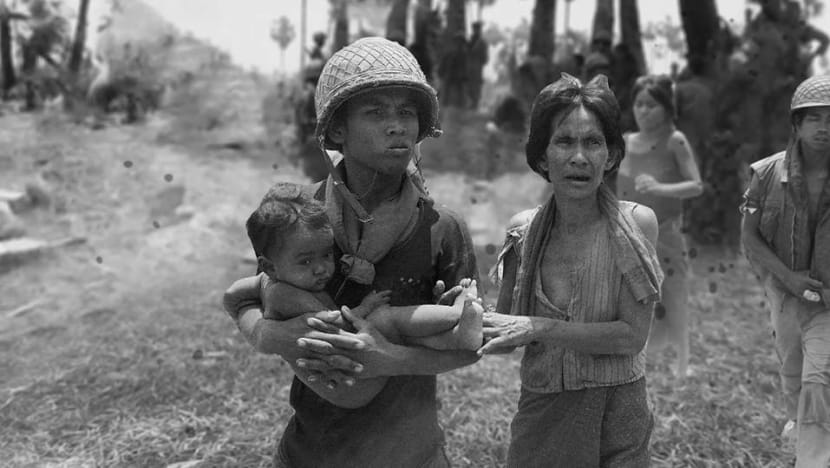Kicked out of the US, Cambodian migrants are sent to a home they’ve never known
Separated from their family and friends, these deportees must fight against homesickness, depression and suicide as they adapt to their new lives. The programme Get Real investigates.
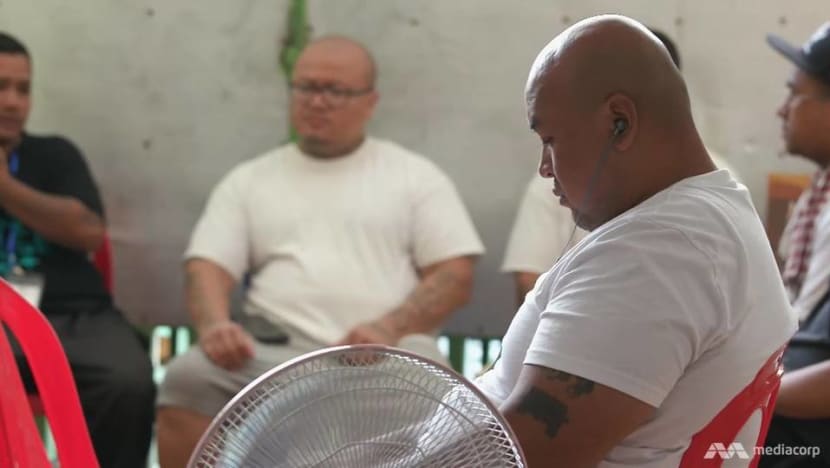
Many of the deportees are unprepared for re-entry to Cambodia.
PHNOM PENH: It had been a decade since he was released from prison. A reformed John Sreang Ly was living freely and had put his conviction for gun possession behind him.
But when the American permanent resident was at the United States Immigration and Customs Enforcement last year, he was suddenly detained and subsequently deported to Cambodia, the country he had fled over 40 years ago because of the Khmer Rouge.
The deportation took place barely three days after his father’s death.
“I never got to bury my father. The only thing (I did) was to sign my dad’s death certificate, and I pulled the plug on him,” recounts the 51-year-old. “It affected me real bad that I wanted to commit suicide.”
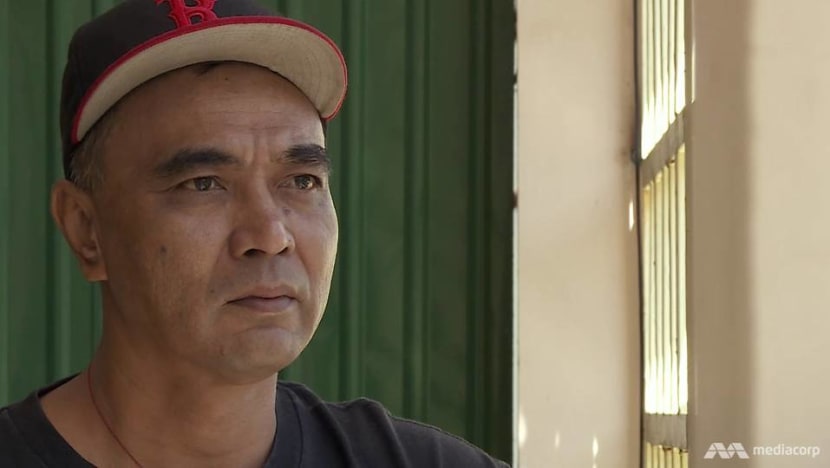
Like many of his countrymen, he was deported from the US without notice. The law makes this possible once a permanent resident like him has a criminal record.
But it was since President Donald Trump came into power, with his zero tolerance immigration policies, that Cambodian immigrants have been actively rounded up for deportation, even long after they had served their time.
WATCH: Never going home (Dur 4:35)
Not only are they separated from family and friends, they must also adapt to an unfamiliar country, as the programme Get Real chronicles their lives as strangers in their homeland. (Watch the full episode here.)
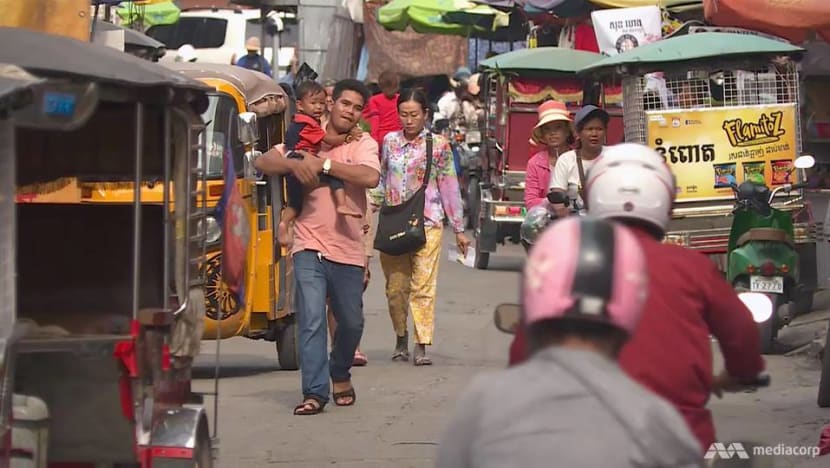
A COMMUNITY SHAKEN
According to the Immigration and Customs Enforcement, it deported 110 Cambodians in fiscal year 2018, up from 29 the year before.
Many more — 1,855 permanent residents of Cambodian origin, of whom 73 per cent have been convicted of a crime — have been issued with deportation orders as of September. This means they could be rounded up, detained and repatriated any time.
The waiting could take years. “They’re in a state of fear,” says Asian Law Caucus senior staff attorney Anoop Prasad, who has been working with hundreds of Cambodian immigrants to help them fight against deportation.
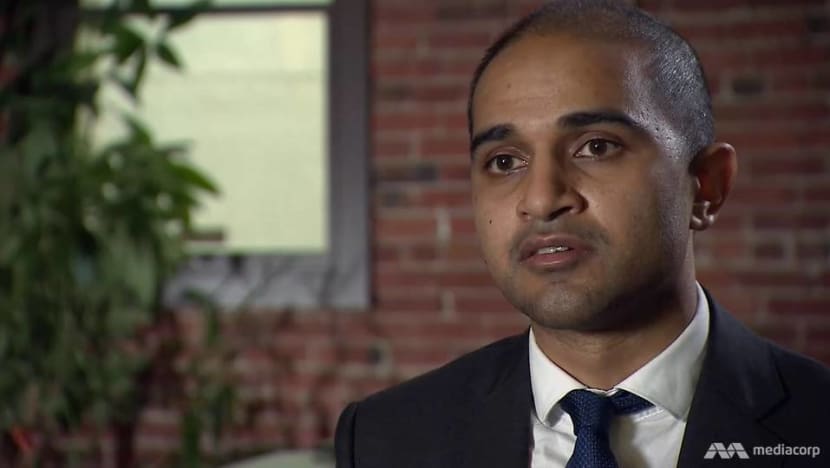
One reason a lot of them, especially the youth, ended up in the criminal justice system, he said, is that the government did not invest in integrating them into the society, but resettled them in the poorest neighbourhoods instead.
“Places with high rates of unemployment, schools that were failing, high rates of gang violence … poverty (and) incarceration. No job training was provided. No English language classes,” he cites.
“Then they were funnelled from the criminal justice system to the deportation system.”
Mr Virak Ou, the former president of the Cambodian Centre for Human Rights, agrees that more could have been done to help the refugees “join the mainstream” and become citizens. “That’s the huge failure from the American perspective,” he says.
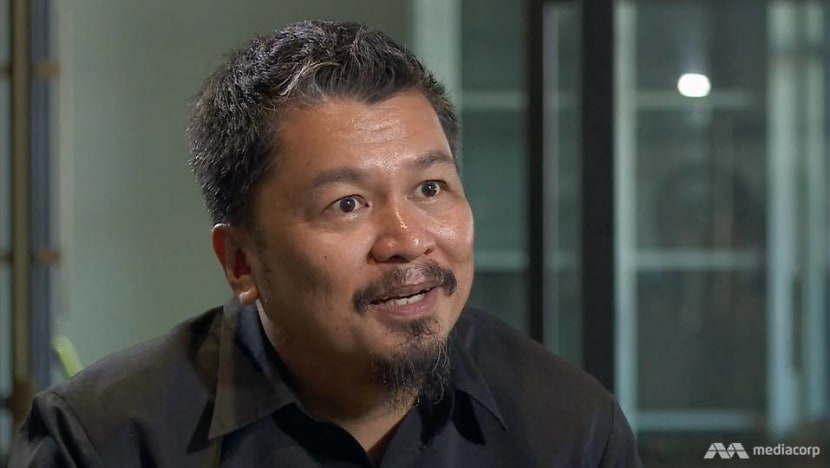
It is not just this community that has been affected. Other Southeast Asian refugees have also been targeted for deportation, but countries like Vietnam and Laos have so far resisted taking refugees back.
Cambodia relented after visa sanctions were imposed on some government officials and their families.
37 YEARS A LEGAL IMMIGRANT
When the country received its largest group of deportees last year — in April — one of the 43 on the plane was Mr Sothy Kum, who had spent 37 years in the US as a legal immigrant.
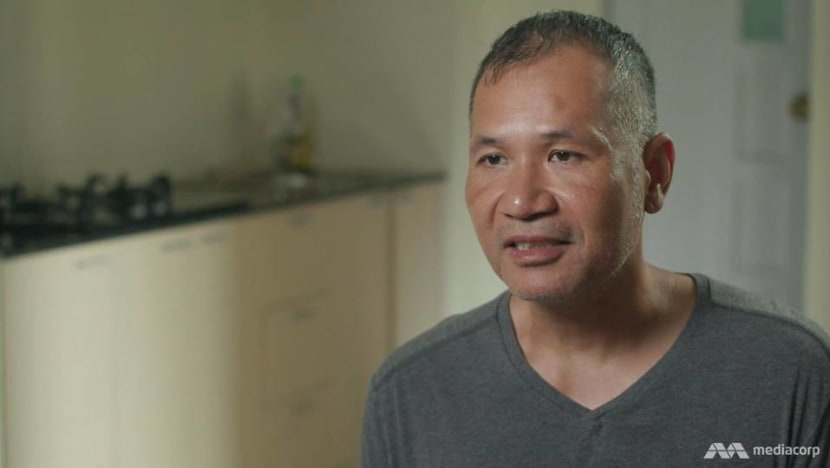
He was taken away from his family — including his daughter Emma, two, and wife Lisa — when immigration officials came knocking in his small Wisconsin town, three years after he had been convicted for having marijuana in his mailbox.
“They tried to lie to me that they just wanted to talk to him, but I knew that they were going to take him,” recalls Mrs Kum. “Knowing that we’d never see him in the US again was really hard.”
Her husband was two years old when his family fled Cambodia, and he says: “I knew nothing of Cambodia. I didn't know where it was on the map, to be honest.”
Many deportees like him are unprepared for re-entry to the country. And growing up in the US, few of them spoke, read or wrote Khmer.
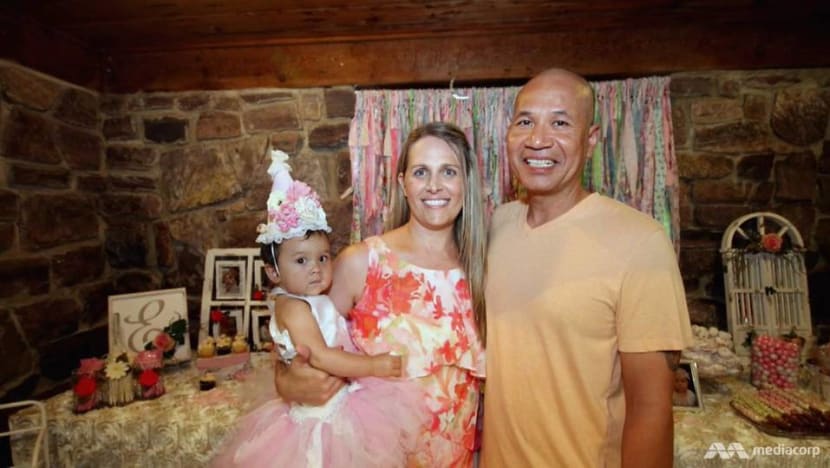
“When the Cambodians first arrive, there's a culture shock,” says Khmer Vulnerability Aid Organisation (KVAO) board member and adviser Bill Herod.
“We meet them at the airport, on the tarmac, and escort them through the immigration procedures. So we're able to … calm (them) down right then.”
His organisation also helps deportees with housing and employment matters in Cambodia, as “they’re worried about how they’re going to survive (and) support themselves”.
In the case of Mr Kum, he managed to find an apartment with money sent to him from his family in the US, but the transition proved to be difficult.
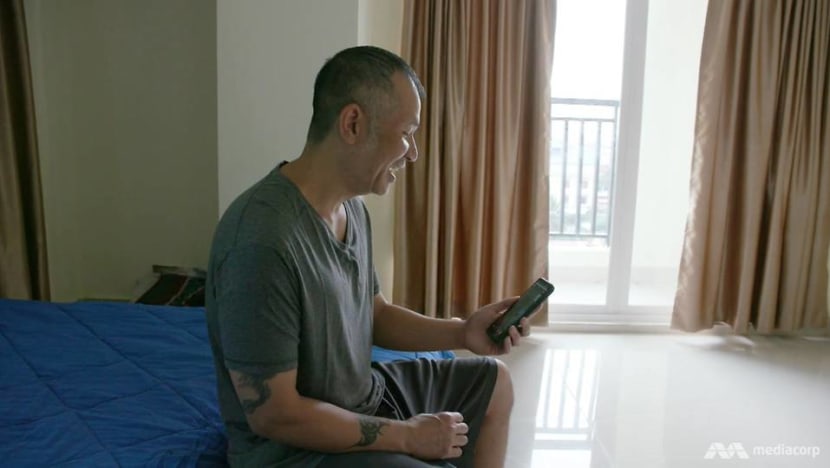
“Everything was new and odd. People were driving the wrong way … Traffic was crazy,” says the 44-year-old. “Trying to cross the street was almost impossible.”
He also missed his family. “I was so emotional because I started thinking about my family, my friends and my little daughter … I was homesick,” he adds.
ALL ABOUT FAMILY
Mr Kum was shown around Phnom Penh by fellow deportee Khan Moek, who had also grappled with feelings of isolation and desperation when he arrived in 2003.
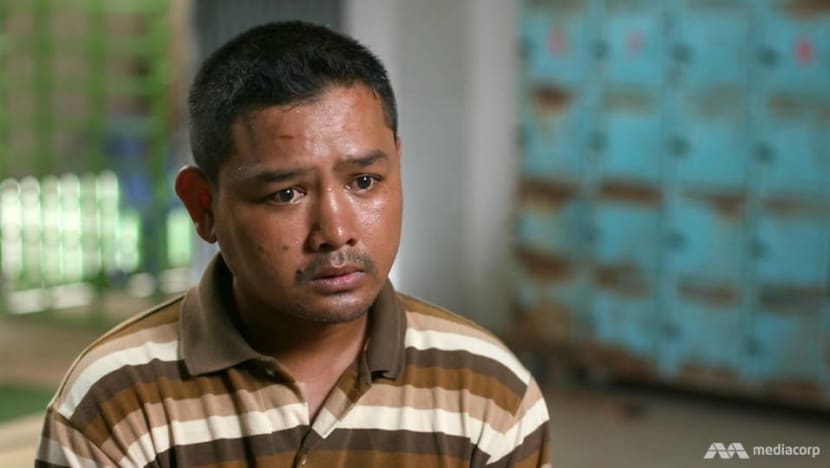
After a few months, he came across the KVAO, which found him a job as a case manager helping other deportees to settle down. He in turn found kinship and family among the deportees staying at the organisation’s halfway house.
“If it wasn’t for the programme, most of us or even myself could have been dead or made some messed-up choices here (such as stealing),” he reckons.
He was deported owing to his criminal involvement in gang activities and was among the earliest batches to be sent back, after the US and Cambodia signed a repatriation agreement in 2002.
The 37-year-old now has a new family and no longer misses the US. But his biggest regret is about leaving behind a son in Minnesota.
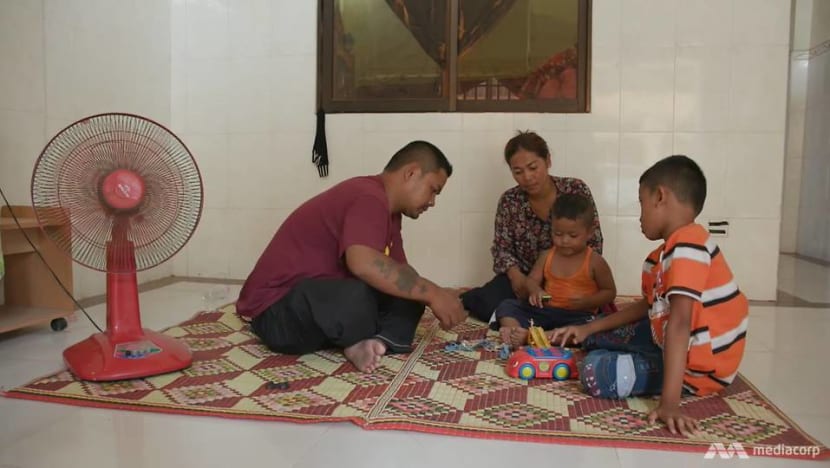
He has been trying to build a long-distance relationship with his son, but it has been rocky.
Over in Wisconsin, Mrs Kum has been managing a printer refurbishing business she shares with her husband, while taking care of Emma alone.
“This situation has changed the entire course of her life. I have a choice to … go to Cambodia so we can be together, or stay here and be away from her dad,” she says.
“If we go there, she’d be away from her family here. Her education is going to be different. I don't know if that’ll be better or worse.”
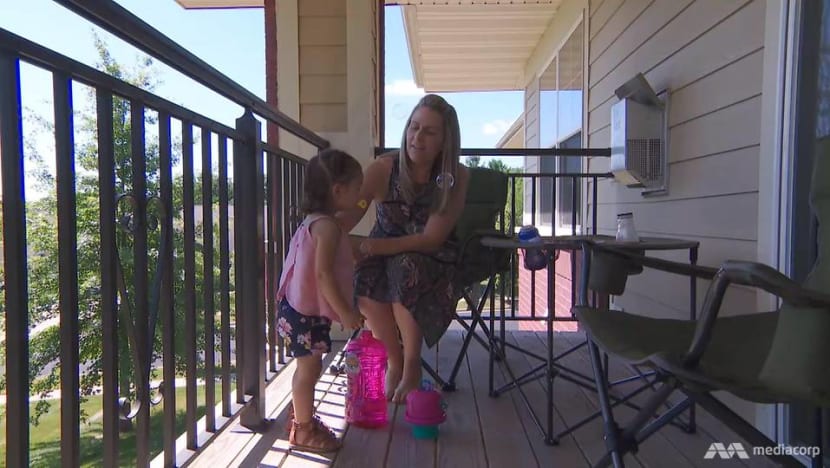
The person who is hardest hit with guilt is her father-in-law Sarin Kum, who did not think to apply for citizenship in all the years since he brought his family to the US.
“I’m just feeling sorry, and I’m sad that he’s gone away from me,” he says. “If (Lisa and Emma) agree to move there, I’d be happy … It could lessen the sadness.”
And that is what the couple have decided — to sell their business and start anew in Cambodia so that Emma can grow up with a complete family.
SOME DON’T MAKE IT
In December, eight months after Mr Kum’s deportation, another 36 deportees were removed, making it 126 arrivals welcomed by the KVAO last year. Despite the efforts of activists and human rights lawyers, as many as 200 could arrive this year.
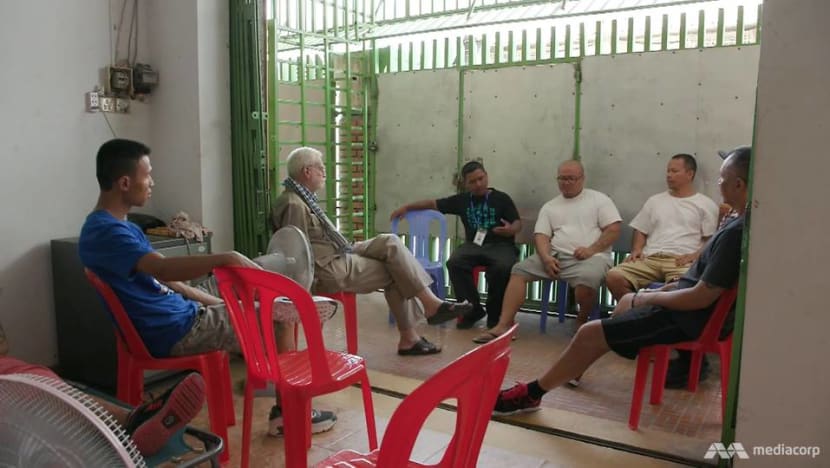
While Mr Kum and Mr Moek have found their feet, the future is uncertain for those with a final order of removal in the US, as not all deportees can turn their lives around in Cambodia.
“Some people make it, and some people don’t. In some cases, depression is quite severe (owing to the) separation from families,” says Mr Herod.
“In some cases, there may be an underlying drug problem, which becomes severer here because they're depressed … Some of them are just lost. We've had some suicides.”
Mr Ly, for example, has been diagnosed with depression and is on medication as part of his psychiatric treatment.
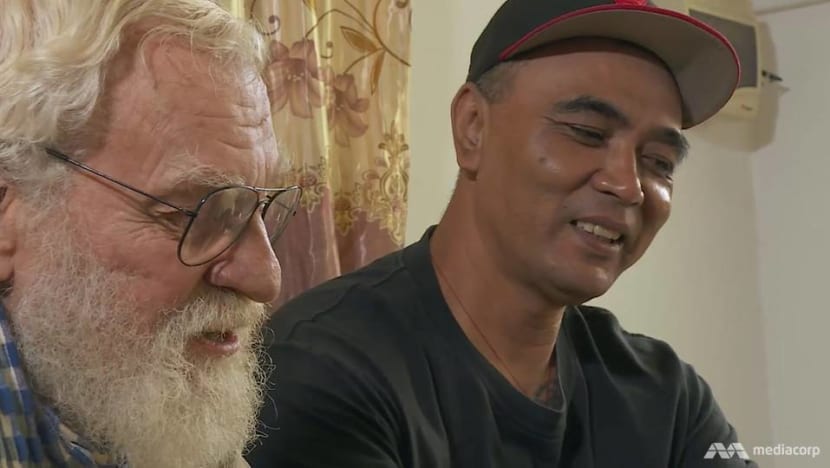
He was only eight when he sought asylum in the US, but was later diagnosed with post-traumatic stress disorder partly because of his experiences in Cambodia when young.
He has no relatives in the country so the “only thing that every day I look forward to … is to reunite with my family”.
“I regret everything … Whatever the reason is, I’m here already. There’s nothing I can do but to hope that one day the law will change, and I’ll be with my family again,” he says.
Watch this episode of Get Real here. New episodes air every Monday at 9pm.
